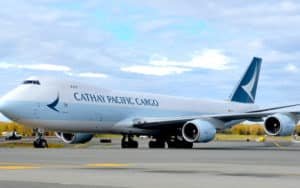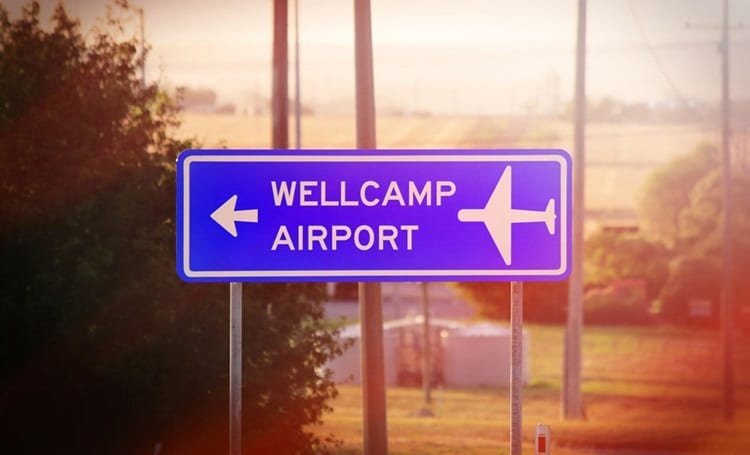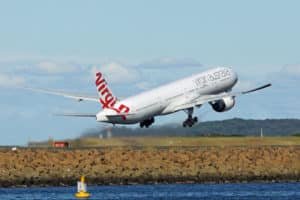Brisbane West Wellcamp Airport is well positioned to become an Australian air cargo hub as other airports struggle with landing slots and limited land availability, cargo and government relations manager, Sara Hales tells staff writer James Muir.
The airport in Southern Queensland is located in one of Australia’s most productive agricultural regions, and has been receiving a lot of interest from a number of airlines, both domestically and internationally.
Cathay Pacific Cargo has already announced it will fly a Boeing 747-8 Freighter to Wellcamp once a week from 21 November on a Hong Kong – Sydney – Melbourne – Wellcamp – Hong Kong route.
Hales says the Cathay Pacific deal was one of a number of announcements and more airlines are expected to start services soon. She says: “We have strong interest from a number of different air cargo companies, and a number of operators are at varying stages of studying both the operational capabilities of the airport, and the business case for cargo services here.”
Hales says airlines see the opportunity to operate from Wellcamp fitting their overall business strategy. “The hubbing of domestic freighter aircraft into Wellcamp to connect with international air cargo services is being explored, and offers strong prospects for the growth of high value exports from a number of Australian regions.”
The region is known for exports including beef, chicken, pork, eggs, horticultural products and milk powder products, and she says there seems to be a significant scope for live cattle, sheep and goat exports. Hales also believes it can cater for oversized cargo for the mining, oil and gas industries.

“The airport’s work in attracting air cargo services has already led to increased interest from value adding and high value manufacturing industries, who are drawn to the prospect of capacity availability out of Australia – and the fact that will give them room to grow their own businesses.”
Hales believes Wellcamp can use its location to its advantage, one hour flying time closer to Asia than Sydney and two hours compared to Melbourne, meaning lower costs of operations, reduced flying time and crew hours: “For imports to Australia, overnight or same day road transport to Sydney from our airport is extremely cost effective.”
As a new piece of infrastructure, Hales says Wellcamp has no limitations on landing slot time availability, meaning operators can take off and land at a time to suit them and meet slot time restrictions at other airports. Wellcamp also has no curfews and has significant land around the airport suitable for development.
“The combination of landing and take off time flexibility and availability as well as the availability of developable land means that operators at the airport have few constraints on the growth of their business and operation in Australia.”
Hales says Wellcamp is actively involved in developing business for airline customers, explaining to ACW: “Growing our business from a very low base has meant that we are a lot more involved in assisting our airline partners with business development than airports typically are. We know our local market very well, and are able to assist with business development for cargo in a practical sense.”
Cargo is often not considered a priority, but it is of equal importance to Wellcamp’s business mix. “The airport’s developers and owners have made significant investments to support the development of cargo operations at Wellcamp, including widebody jet capable aviation infrastructure, a business park surrounding the airport with strong road transport capabilities, and a cargo terminal which supports perishable freight.”
Over the coming years, Wellcamp will also build a world class perishables handling facility and cargo terminal and a code F cargo apron adjacent to this cargo terminal.
Wellcamp has also been developing the Wellcamp Business Park to compliment the airport to provide businesses such as freight forwarders with room. “Designed to support B double truck operations throughout the business park, Australia’s inbound and outbound airfreight no longer has to battle through our major cities in order to connect with air services, but can utilise a new hub – dramatically improving first and last mile efficiencies, and for perishables, cool chain integrity.”
Airfreight in Australia is expected to grow as the country signs free trade agreements, and Wellcamp believes this is an opportunity to shift air cargo services to its dedicated facility, which has capacity to cater for future growth.
Hales says most other Australian airports are operating at or above capacity due to strong passenger growth, so something new is needed for air cargo, and Wellcamp says it can provide this.
She tells ACW: “Capacity, land-based transport efficiencies, a lower cost of operating into and out of Australia, a strong base of exporters as well as a savvy and ambitious airport partner are proving a winning combination.”




